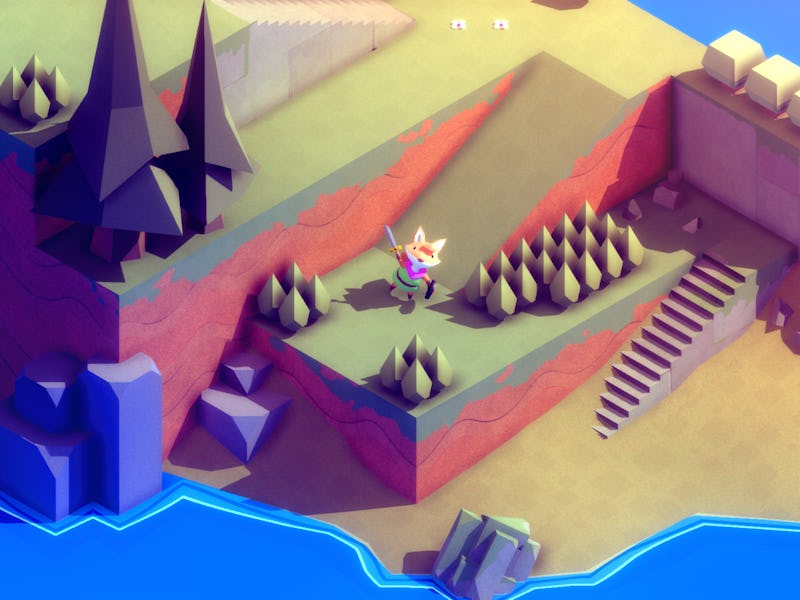You need to play 2022's best new indie on Xbox Game Pass ASAP
Tunic is a worthy spiritual successor to some RPG greats.

There’s a fine line between inspiration and imitation. There’s no such thing as a blank slate, especially in gaming. Developers all have influences ranging from childhood nostalgia to professional admiration. Can a game inspired by icons really expect to compete with them? Will players cry plagiarism? Or will they embrace something new?
Tunic from Finji provides an answer to these questions. It wears its Legend of Zelda inspiration on its sleeve, literally. The titular tunic donned by your plucky little fox adventurer makes clear where the game finds its roots. But it grows beyond being an imitator into something unique. It’s not a reskin, it has a soul of its own.
Tunic breaks creatively from Zelda-ism in one key aspect: It obliterates the fourth wall.
Where games like Breath of the Wild invite you to set the world aside and get lost in the fantasy, Tunic isn’t afraid to acknowledge it’s a game. This is seen best in the collection of the world map, deliberately fashioned to be an instruction booklet evocative of the early days of RPGs. Don’t worry. Players who don’t have fond memories of a car seat-free childhood spent sliding on bench sheets reading “the instructions” on the ride home from Babbage’s will still enjoy it. Just don’t expect to read it.
Much of the text in Tunic consists of indecipherable runes, with snippets of English here and there. The manual contains enough context to provide you with key info on items and techniques, but nothing is spelled out. This may sound annoying or confusing, but it’s not. Strong, intuitive game design is the real secret here. Tunic invites you to explore and discover without ever making you feel hopelessly lost.
This is again a nod to its Hyrulian roots. You’ve probably played something from the Legend of Zelda franchise. Odds are even higher you’ve played something it inspired. Because of this, Tunic feels very familiar right from the start. Your character wakes up on a beach, no memory, no story. You instinctively start exploring and it doesn't take long until you find stuff.
It doesn’t take long to find action, either. The combat system in Tunic goes in a decidedly un-Zelda direction by drawing from Dark Souls instead. A recent spate of review bombs seems to take issue with these similarities.
If you’re not a self-identified “purist” for such things then you’ll likely enjoy it because it’s a good system in the easy-to-learn-hard-to-master sense. Quick reflexes prevail over button mashing, and the sweeping score adds thrills to an exciting vibe.
Tunic captures something spiritual that many other Zelda-inspired titles miss. It has a feel to it, a well-executed sense of joyful discovery. Take a hard look and you’ll see every element is in service of this idea; it’s no accident. If imitation is the sincerest form of flattery, then sincerity is what makes Tunic truly special.
Tunic is available on Xbox (including Game Pass) and PC.
This article was originally published on